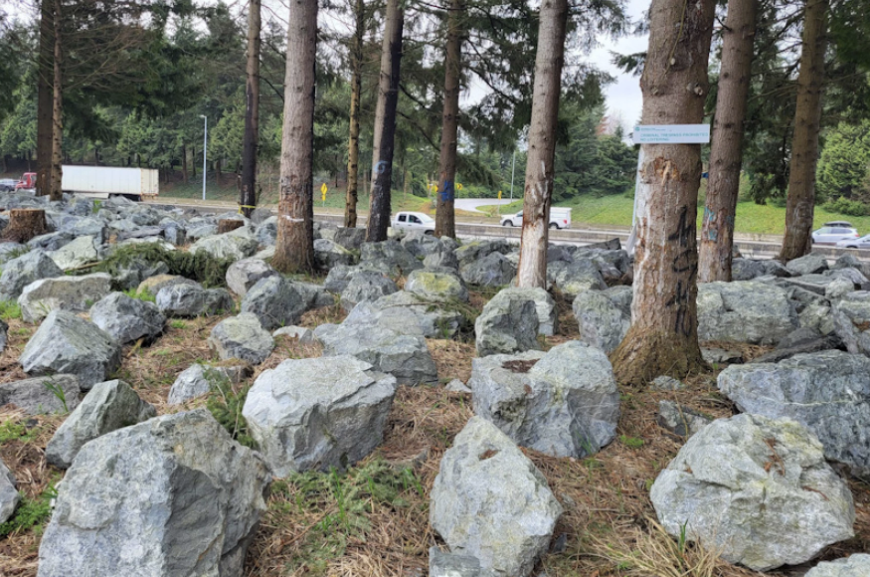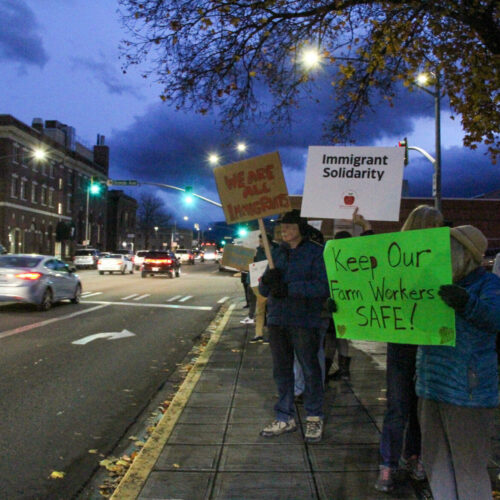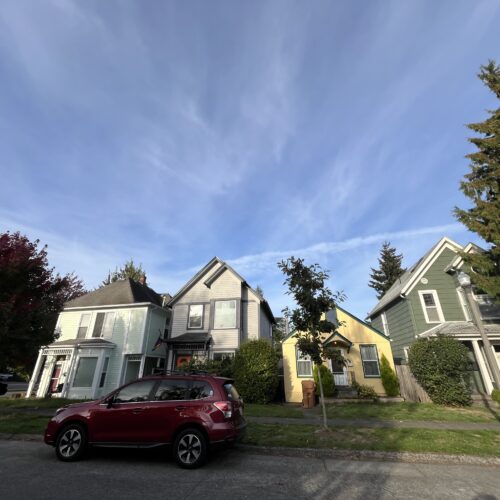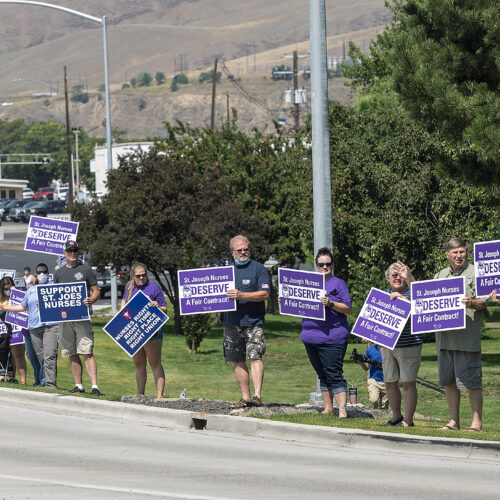
WA leaders highlight progress on homelessness, worry about encampment cleanup funding
By: Jeanie Lindsay, Northwest News Network
Part of a program to move people out of homeless encampments along major roads in Washington is facing an uncertain future. Officials say without more funding, future encampment cleanups along roadsides will be “challenging.”
They brought the issue up on Wednesday at a meeting with Gov. Jay Inslee to review the state’s progress on addressing homelessness.
The Washington Department of Transportation monitors sites that have been cleared under the so-called “encampment resolution program” – originally known as the governor’s Rights of Way Safety Initiative. The program focuses on moving people out of encampments along busy roadways and into more stable housing or emergency shelters with services they might need.
A spokesperson from the governor’s office says the Legislature provided $20 million to continue to help acquire housing for people in those encampments. The governor asked lawmakers to provide an additional $10 million in the state’s supplemental budget to support cleanup efforts at those sites once people are no longer living there.
But according to Inslee’s office, the Legislature ultimately approved only about $2 million for cleanup.
“It is going to limit our ability to address new sites – certainly from a staffing standpoint we’re going to be able to monitor the sites that have been addressed in the ERP but doing more is going to be challenging,” said Steve Roark, a WSDOT administrator.
More than 30 encampment sites across the state have been cleared under the program over the past two years. Officials say they’ve moved about 1,000 people out of those encampments and into permanent housing or shelters — and about 72% are still there.
Leaders also reviewed data around the housing crisis and key contributors to homelessness at Wednesday’s meeting.
Officials say the good news is that median and minimum wage increases have provided some stability to workers even as housing costs go up. But people with low or fixed incomes are bearing the brunt of the housing crisis in Washington state.
“For people with fixed incomes, that has not kept pace with the housing price increases,” said Tedd Kelleher, Housing Policy Director at the Department of Commerce.
Kelleher said that at least 316,000 very low income households in the state spend over half their income on rent costs, with housing prices far outpacing federal disability payments. The state also fell short on its construction goals by about 18,000 housing units last year, and officials say some form of government funding help is essential to make housing more affordable.















